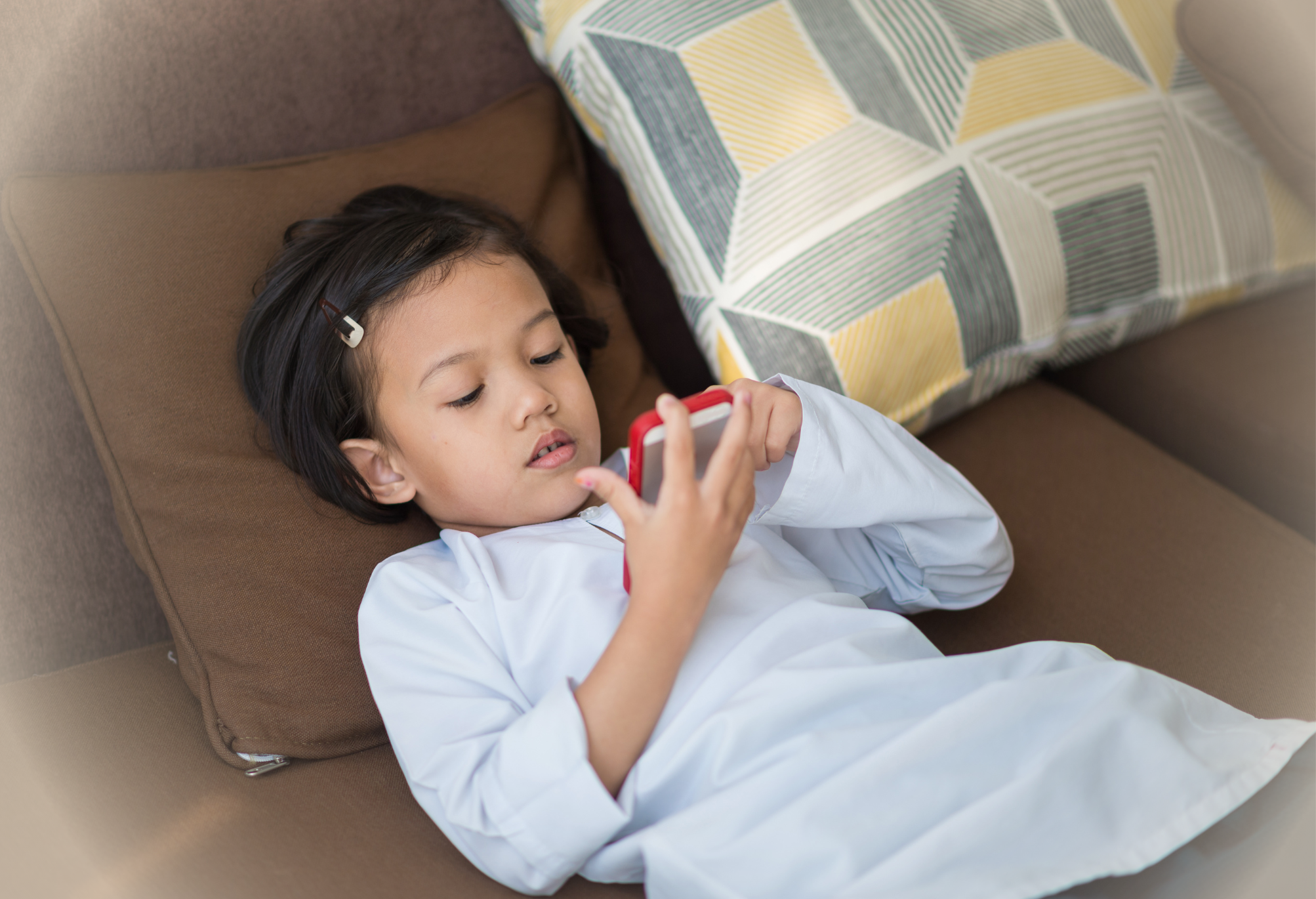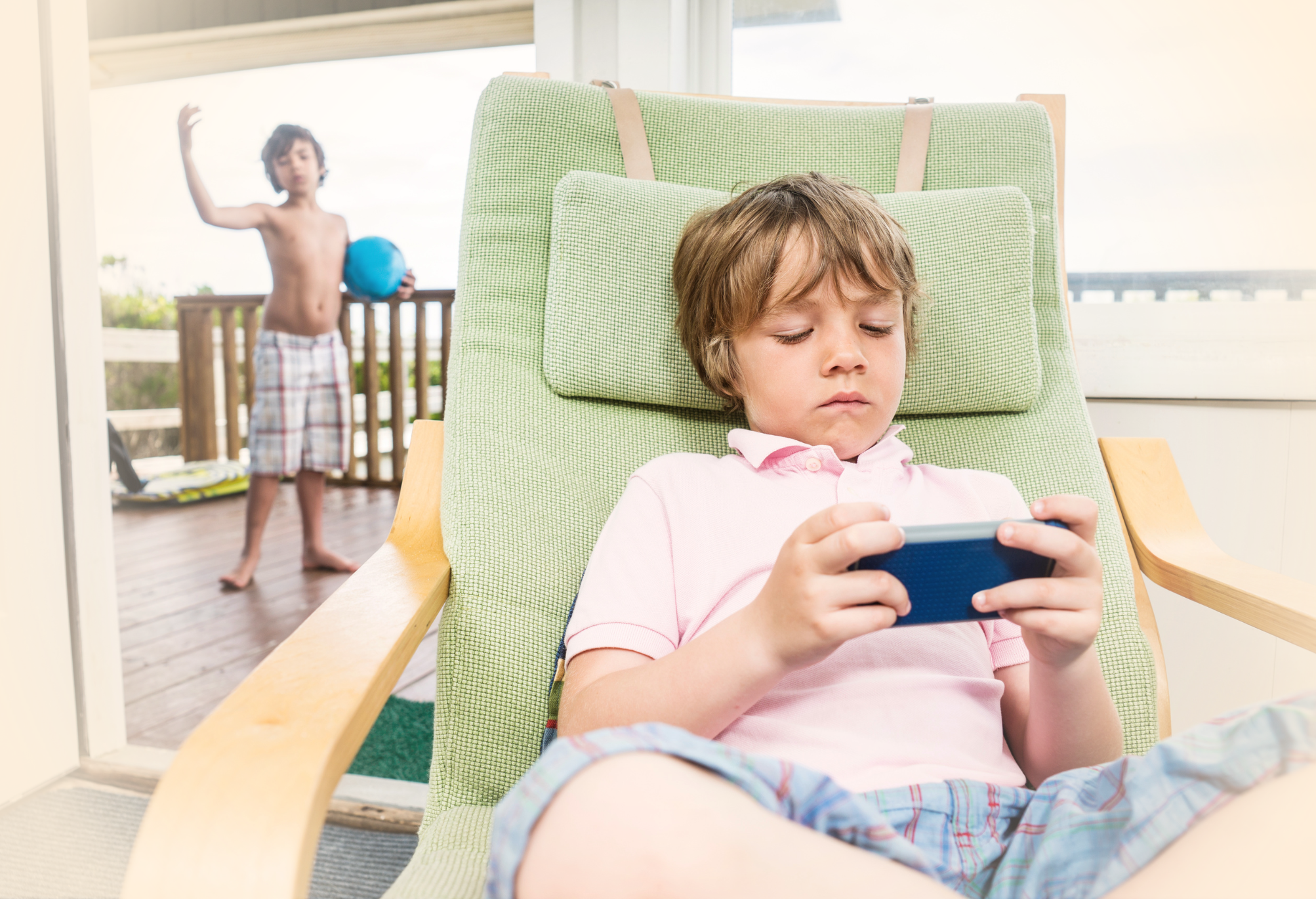HIGHLIGHTS
- Excessive screen time in kids is almost unavoidable
- The impacts of excessive screentime
- How to reduce the effects of excessive screentime
Health authorities agree that excessive screen time has an adverse impact on childhood development (1). But the proliferation of new technology and devices in recent years has led to increased exposure to screens among children, starting even in infancy.
Here’s a closer look at current research on the impact of screen time on mental health and development, and what parents and caregivers can do to help promote children’s well being in a world of ubiquitous screens.
INCREASED SCREEN TIME IN CHILDREN OF ALL AGES

While children’s screen time use varies from country to country, the global increase of mobile devices such as smartphones and tablets has led to big and rapid changes in children’s patterns of media use. In 1970, according to the American Academy of Pediatrics, children began to regularly watch TV at four years of age.
Today, however, children begin interacting with digital media as early as four months of age (2).
In 2011, the U.S.-based Kaiser Family Foundation’s survey of parents found that 52% of children 0-8 years of age had access to a mobile device. Just two years later the same survey found this access had increased to 75%. Another study in 2015 found that 97% of children up to 4-years old had used mobile devices, as had 92% of one-year-olds (2). Studies of older American children and adolescents show similar results. Approximately 24% of adolescents describe themselves as “constantly connected” to the Internet, 50% report feeling “addicted” to their phones—no big surprise given that 75% of teenagers own their own smartphone (2).
IMPACT ON CHILD DEVELOPMENT, AND MENTAL HEALTH IN PARTICULAR
What does increased screen time mean for the health and development of children?
Data from the American cases signals concern for children everywhere. Excessive screen time has been shown to negatively impact the development of physical and cognitive abilities (1). It has also been linked to obesity and cardiovascular risk, sleep problems, depression, anxiety, language delays, and social/emotional delays (1, 2).
The reasons why this is the case are still being studied, but research suggests that possible mechanisms for these outcomes include
- viewing inappropriate content,
- a decrease in parent–child interaction when screens are on,
- and poorer family functioning in households with high media use (2).

Regardless of why these outcomes occur, the bottom line is that excessive screen time in children can negatively impact development—and mental health in particular. Among pre-schoolers, an earlier age of media use onset and greater cumulative hours of screen time are both predictors of deficits in two crucial areas of mental health: executive functioning, which includes impulse control, self-regulation, and mental flexibility, and theory of mind, which is the ability to understand others people’s thoughts and feelings (2).
Evidence also suggests that screen time negatively affects sleep, in children of all ages. Six-to-12-month-olds who were exposed to media screens in the evening hours show significantly shorter night-time sleep duration than those who had no evening screen exposure. In preteens, bad sleep quality is associated with greater internet use and later screen turn-off time. In teenagers, screen time before sleep has been linked to sleep difficulties and symptoms of depression (2).
HOW MUCH SCREEN TIME IS TOO MUCH?

Advice from the Australian Institute of Family Studies (AIFS) includes the following:
- no screen time for children younger than two years
- no more than one hour per day for children aged 2–5 years
- no more than two hours of sedentary recreational screen time per day for children and young people aged 5–17 years (not including schoolwork).
WHAT ELSE CAN PARENTS AND CAREGIVERS DO?
Parents and caregivers play a crucial role in modelling healthy behaviours for their children, including when it comes to screen time. Research has shown that parents’ own screen time can distract from parent–child interactions (2). And because parent–child interactions are the primary driver of early childhood development of language, cognition, social skills, and emotion regulation, they are crucially important to preserve.
Screen time continues to increase, among children and adults, despite the growing evidence linking too much screen time with poorer health. Parents and caregivers can promote the optimal health and development of children by listening to the expert recommendations to limit screen time, not just for children but also for themselves.
MORE ON KIDS HEALTH
References
1. Domingues-Montanari S, J Paediatr Child Health. 2017 Apr;53(4):333-338
https://www.ncbi.nlm.nih.gov/pubmed/28168778
2. Reid Chassiakos YL, Radesky J, Christakis D, Moreno MA, Cross C, Pediatrics. 2016 Nov;138(5).
https://www.ncbi.nlm.nih.gov/pubmed/27940795






Leave a Reply
Want to join the discussion?Feel free to contribute!